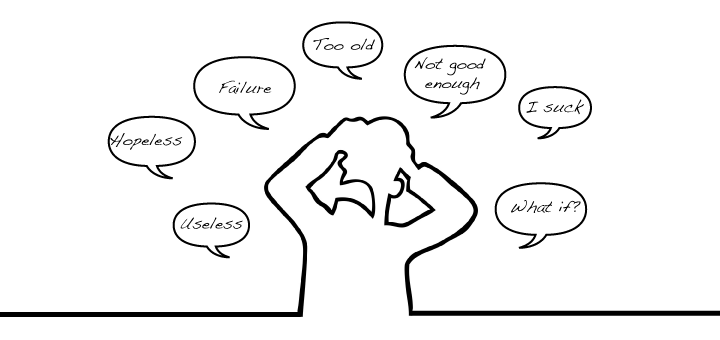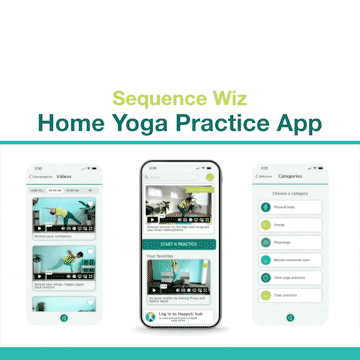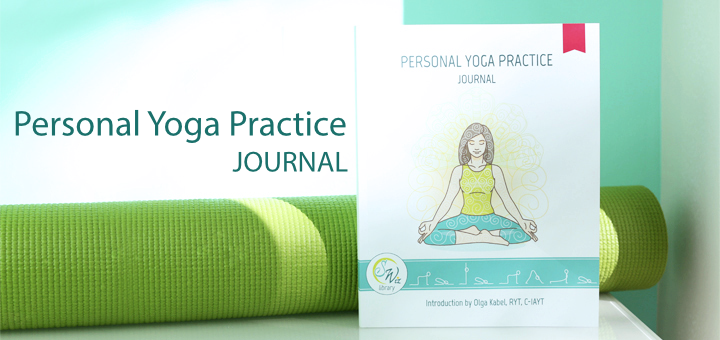Yoga for busy mind – how to deal with the Itty Bitty Sh**ty Committee
5 Most of the cells in our body and brain are constantly striving toward the state of homeostasis and want us to be happy, healthy and successful. But there are some party poopers, as well. A very small number of cells in our verbal mind is very resourceful in tapping into our insecurities, doubts and anxieties, which results in negative self talk and mental loops of doom and gloom. How can we break out of that cycle? Let’s explore.
Most of the cells in our body and brain are constantly striving toward the state of homeostasis and want us to be happy, healthy and successful. But there are some party poopers, as well. A very small number of cells in our verbal mind is very resourceful in tapping into our insecurities, doubts and anxieties, which results in negative self talk and mental loops of doom and gloom. How can we break out of that cycle? Let’s explore.
Two weeks ago I have moved from Portland, Oregon to Troy, Michigan. The move was prompted by a fantastic professional opportunity for my husband, but for me it meant leaving behind my friends, my favorite city and my yoga studio. It was tough. On top of million logistical things associated with moving across the country I also had to wrap up my business and reconcile with the fact that I would have to start all over. Needless to say my Itty Bitty Sh**ty Committee went in overdrive, fueling my anxiety. Unfortunately I didn’t have much time for formal yoga practice, but what I found the most effective in reining in my inner critic was … chanting. It took different shapes: sometimes I would just hum something to myself, mentally or verbally, just to override the other mental noise that was taking place inside my head. Other times I would just say “let go, let go, let go” as I exhaled to help myself get rid of the mental nonsense. And other times I would use my favorite Sanskrit chant along with breathing and some asana, which had the most pronounced effect on how I felt.
When you think about it, using chanting, or sound in general, to change the negative self-talk makes perfect sense. Yoga tradition is very clear that we need to select treatment practices that match the problem. Have a physical issue – do asana, have a physiological problem – use pranayama. Since my issue was verbal, the best way to treat it was through sound.
Yogis have used sound for thousands of years because they understood the importance and effectiveness of that tool (And it’s so easy, too! No need to stand on your head). Sound affects us on several levels:
- COGNITIVE: It means something. You hear a nursery rhyme and you understand what it means. But the same rhyme might also bring up images from your childhood, certain experiences, feelings – and those associations will be uniquely yours.
- INHERENT: In yoga it is believed that certain sounds have inherent meaning on the level of symbol and vibration, whether or not you understand it consciously. For example, in many cultures the syllable “MA” is associated with ‘mother’.
- ENERGETIC: Would your perception of what I said change if I said IT REALLY LOUD and then said it v e r y s o f t l y a n d s l o w l y? How about higher pitch and lower pitch? That is the energetic effect of sound.
 If you choose to use sound in your yoga practice, you can structure it to communicate a certain cognitive meaning (For example, repeating “Let go, let go, let go” on the Exhalation will help you to … let go). Or you might chose to integrate a certain mantra (mantra is a syllable that doesn’t have discursive meaning, but is believed to capture the essence, the vibration of the object/symbol/deity). Or you might decide to use sound volume to produce an energetic effect (For example, start with loud chanting and gradually lower the sound to the soft whisper, which will have a calming effect on the system). The possibilities are endless.
If you choose to use sound in your yoga practice, you can structure it to communicate a certain cognitive meaning (For example, repeating “Let go, let go, let go” on the Exhalation will help you to … let go). Or you might chose to integrate a certain mantra (mantra is a syllable that doesn’t have discursive meaning, but is believed to capture the essence, the vibration of the object/symbol/deity). Or you might decide to use sound volume to produce an energetic effect (For example, start with loud chanting and gradually lower the sound to the soft whisper, which will have a calming effect on the system). The possibilities are endless.
But one of the most useful things that we can accomplish with sound is to use it as “digestive enzyme” to metabolize our neurosis. Through speech we process things, using mantra speeds up the process. Remember our Itty Bitty Sh**ty Committee? Instead of trying to shut it down (which is not going to happen), give it something to do! You know how sometimes you get some song stuck in your head? You just keep singing it in a loop, overriding other loops in your brain. But instead of a silly and annoying song you can choose a chant that actually means something to you, that helps you feel uplifted. It can be anything you like – a line from a poem, a phrase, a quote, a mantra. It can be in any language you like, although you are more likely to focus if it’s NOT in your native language; otherwise it’s too easy to go on auto-pilot. Link the chant to your breath, repeat it for a while and before you know it the negative pattern that runs through your mind is replaced by something positive.
As I was packing for my move I’ve discovered my old journals from the very beginning of my viniyoga teacher training. Since chanting was introduced there, I’ve recorded my experiences with it at the time: “I am having trouble with this chanting thing. It sounds good and I like how it vibrates, but it doesn’t mean anything to me, even though I am aware of the translation. May be I will discover it later? Overcome my resistance to it?” Fast forward 8 years and here I am embracing chanting in all it’s shapes and forms. I hope that you get to discover this wonderful tool for yourself and your students. It’s so effective and so diverse, we don’t have to limit it to “Om”. Below is a short practice with one of my favorite chants Hrdayam mayi. This is actually a part of a much longer chant, Laghu nyasa, but I like to keep it simple for my practice.




















Olga, one of my very favorite chants, learned from my teacher Robin Rothenberg. Thank you! And good luck with settling in. I moved from the Seattle area 11 years ago to the Midwest, leaving behind my yoga community, my friends, and my family. It was a huge shift for my personal practice, but one that has taught me so much.
Thank you for your support Nan! That’s exactly how I am choosing to look at it right now – a new opportunity! Chanting helps with that 🙂
Reblogged this on The Lure of Beauty and commented:
Useful advice on fighting fire with fire.
Olga, thanks for sharing about your life and how to handle that committee 🙂 Just had dinner with Sherry and we were talking about taking your on-line class . . . gotta figure out the logistics so it may be a while, ha!
Hi Pamela! Hope to see you on-line! Please give my best to Sherry when you see her. I miss Portland and my students!